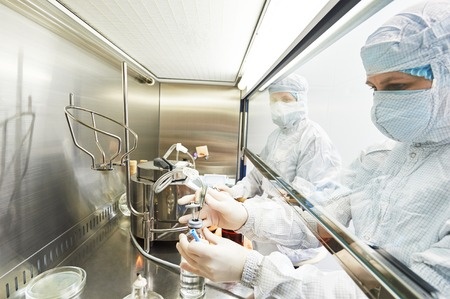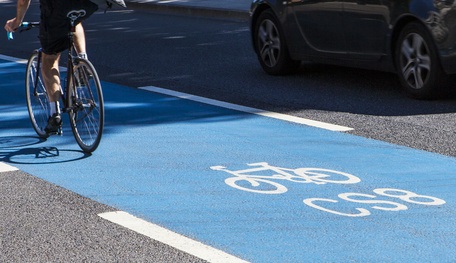Many of you will have heard of air pollution and the damage that it can do to our health as well as the planet that we live on, but have you ever heard of workplace air pollution? Workers that work in certain fields are exposed to this kind of pollution – whether they work outside, in a large factory or in an office.
So, What is Workplace Pollution?
Workplace pollution is any kind of pollution that you may be experiencing while you’re working. This could be hazardous chemicals, gases, dust, fumes, vapours or even noise that you are subjected to as you go about your job.

Workplace Pollution Injuries and Accidents
These pollutants are deemed hazardous if they can have a negative impact on your health in both the short and long-term. Those that are subjected to workplace pollution regularly and over a long period of time are those most likely to develop health problems, even if the pollution is at a relatively low level. This is why it is important to learn about workplace pollution and what it could mean for your health.
Air pollution is the type of workplace pollution that is the most common in the UK. This could be anything from fumes, dust, gases or anything else that can be breathed into our lungs through the air.
Could You Be At Risk in Your Workplace?
We are all at risk from pollution in one way or another, but when it comes to workplace pollution specifically, there are some professions which carry a larger risk for those working within them.
Below are some of the industries/professions where there is an increased risk of being subjected to prolonged exposure to workplace pollution:
- Construction
- Engineering
- Mining
- Textiles
- Manufacturing
- Auto Repair Shops
- Dry Cleaning
- Farming
- Welding
While the above are some of the more obvious workplaces that could put you at risk, pretty much any workplace could carry a potential threat. A poorly ventilated office in London could be exposed to ground-level ozone outside due to workers opening windows and delivery drivers or haulage drivers will also be exposed to the same kind of risks. The same could be said for anyone working out in the open.
What Danger Does The Workplace Pose for Our Health?
The specific type of pollution or materials that you are breathing in will each have their own set of risks, but the more common risks that you will face from them is as follows:
- Potential Damage to the Lungs: Your lungs will be inhaling this pollution so it is understandable that they will be at the most risk. Pollution can prevent the growth rate of lungs in children, can affect their performance in young adults/adults/elderly and it is also be a leading cause of lung cancer.
- Potential Damage to the Heart: Stroke, angina, arrhythmia, hypertension and heart disease have been linked to workplace pollution in cases in the past. The heart is the most important muscle in the body, and can be put under various stressors related to workplace activities.
- Asthma and Allergies: Breathing conditions can be affected both in the short term and long term, with asthma and allergies particularly being irritated. Another concern is that chronic obstructive pulmonary disease (COPD) can also be caused by regular exposure to workplace pollution.
Potential Symptoms of Workplace Pollution
Some of the more common symptoms that could indicate that you are suffering from the health effects of workplace pollution include:
- Drowsiness
- Headaches
- Painful coughing
- Difficulty breathing
- Dry eyes, nose or throat
While many of these could be symptoms of something unrelated, if you are feeling any of them not long after leaving an affected area, there is a good chance that you are suffering the effects of workplace pollution. If you do not normally spend too much time in heavily affected areas but you have just come out of such an area and start to notice these symptoms, it is likely that you will be noticing them a lot more.
What to Do If You Think You Are Suffering From Workplace Pollution Related Symptoms?
If you are worried that you are experiencing any symptoms of workplace pollution, you should first keep track of the times you get these symptoms and the times when they go away. You should then take this to your health professional and explain the working conditions that you are subjected to.
Your health provider will then be better informed as to whether your symptoms really are a cause of workplace pollution, or due to something else.
If your doctor agrees that your symptoms are due to workplace pollution, you should share your concerns with your supervisors or managers and also seek as much advice on workplace pollution as you can from your local government advice centres and other qualified authorities.
How to Claim Compensation For Workplace Pollution?
If you have contracted an illness or injury from workplace pollution, gather any evidence you can and then speak to a personal injury solicitor that specialises in accidents at work or visit https://www.accidentclaims.co.uk/personal-injury-compensation/accident-at-work-compensation-claims . A personal injury solicitor that has experience in workplace accidents, injuries and illnesses will be able to look at your evidence and determine whether you have a good claim for compensation and give you the best advice on moving forward with a claim.
Other helpful links
https://www.gov.uk/report-an-environmental-incident


 There are more than 30% more cyclists on the roads compared to ten years ago, which is certainly a sizeable increase. However, those against the new cycle highways in London claim that almost all the cyclists are seen during rush hour with the lanes barely being used in between.
There are more than 30% more cyclists on the roads compared to ten years ago, which is certainly a sizeable increase. However, those against the new cycle highways in London claim that almost all the cyclists are seen during rush hour with the lanes barely being used in between.